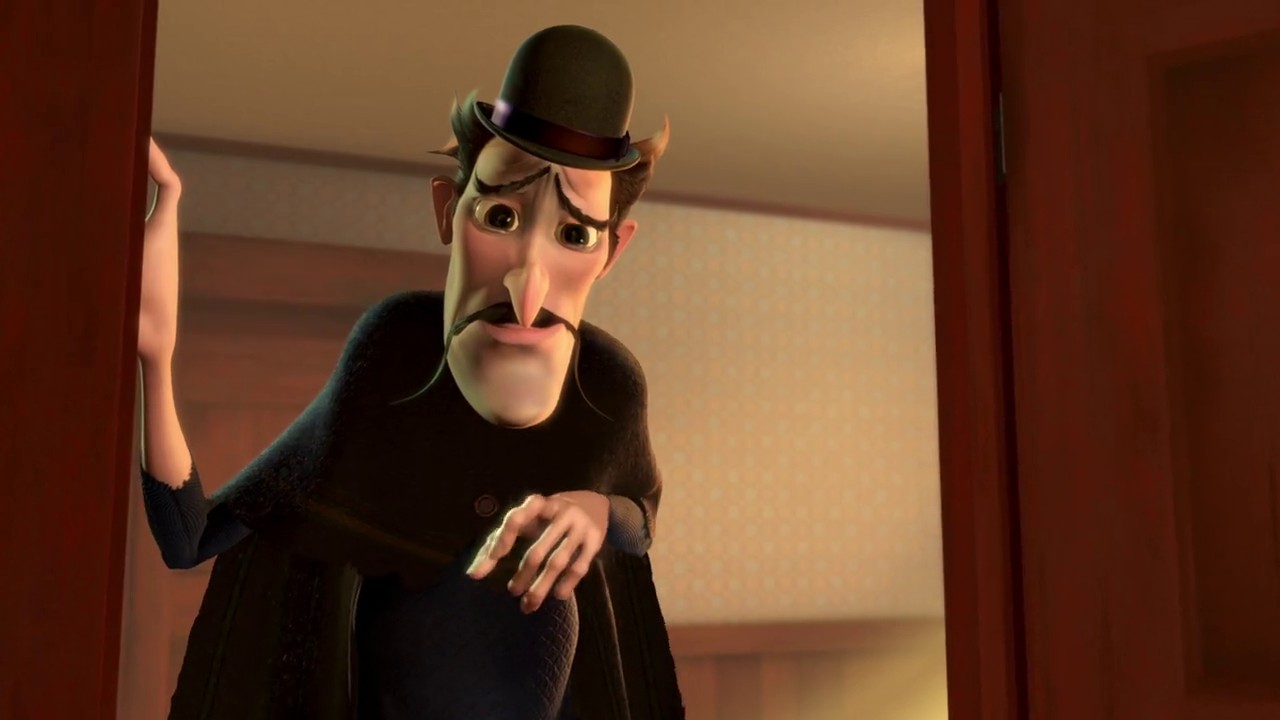Any fan of the studio knows that, throughout its existence, the studio had many ups and downs, periods of great success and great failures. The first of this dark periods was in the 1940's when the war put the studio in a difficult financial situation and they had to do inexpensive "package" films to survive. While this films are not terrible, they weren't the creative hits that came before or after. The second dark period began after Walt Disney's death when the studio didn't want to take risks and many of its films were stale and uninspiring affairs that didn't earn a lot of money. However, the third and darkest period occurred in the 2000's after the studio had a long decade of successes both financially and creatively.
This period was the darkest because the studio was not longer the only supply of animated films in the country (Don Bluth was a strong competitor during the 1980's but that faded quickly after The Little Mermaid was released). During the mid and late 90's, two new studios entered the fray. The first one was Pixar Animation Studios, that completely change the face of animation and the industry with the revolutionary Toy Story. The second one was DreamWorks Animation, whose films attracted large audiences with their brand of humor. Suddenly, WDAS was lost among its most contemporary and popular competitors. Most of its films didn't ignite the box office like they did during the 90's and people were apathetic towards the stories they were telling. It didn't help the constant executive meddling that crippled most of this productions (Atlantis comes to mind) squandering their potential and frustrating the artists working in the films. By the mid-2000s, WDAS was no longer a relevant studio. They closed their hand-drawn division and focused on computer animation. Their first computer-animated film, Chicken Little, was a creative disaster, resembling more a DreamWorks Animation film than a WDAS one. Without an identity and a clear direction, the studio ceased to matter. Discussions of closing it were not unheard of and the overall atmosphere inside its walls was of hopelessness.
Then, in 2006, Disney bought Pixar and everything changed. John Lasseter, the mastermind behind Pixar's success and director of Toy Story, became in charge of the flailing studio. He took out corporate meddling and incorporated a filmmaker- driven studio. But, his first order of business was to intervene in a film that was already in production: Meet the Robinsons.
Meet the Robinsons is a film that does not scream "instant classic" or is as recognizable as other modern films like Frozen and Zootopia. Nonetheless, the film was responsible in foraging a new attitude at the studio and became the first connection it had with an audience that abandoned them long time ago. The film presented a bold premise of time-travelling that was new for the studio and mixed it with a heartfelt story of identity and figuring who you are. In many ways, Meet the Robinsons mirrored the situation at the studio. Just like its protagonist, Lewis, the studio and its artists felt alone and abandoned, trying to recapture the past. Also, as the film progresses, Lewis sees the bad things that can happen if he keeps clinging to the past reflected in the Bowler's Hat Guy, an antagonist with surprising depth, who let one bad day ruin his entire life. At the end, Lewis understood that, while his past is important, he has to move on and look to the future. That's also something that Lasseter did when it came to the studio. He gave the crew a new way of doing things and encourage them to try new stuff. The film ends with Lewis figuring out who he is and knowing where he is going. Just like that, WDAS slowly but surely, began building a new identity and now, it's a studio that honors its traditions and heritage while also introducing novel concepts and who is not afraid of taking risks.
10 years later, Meet the Robinsons remains a fresh and nice entry in the Disney canon. It's not a perfect film, but it's core message not only helped the studio to look into the future but also, make audiences care about Disney Animation again. Meet the Robinsons may not have won awards or became a box office hit but, in it's own, quiet way, ushered a new era for the studio, an era that's still underway with fantastic films that are enchanting moviegoers around the world. Meet the Robinsons created a more confident, assured and creative studio, a studio that keeps moving forward.




No comments:
Post a Comment